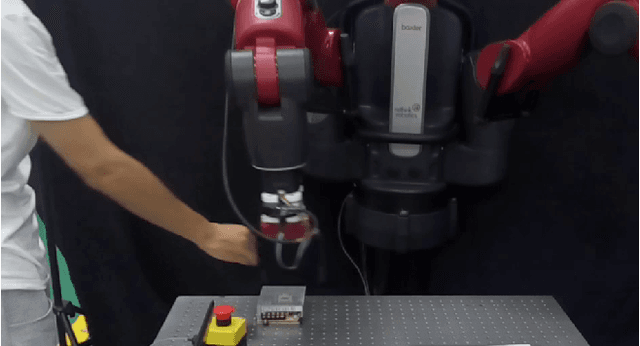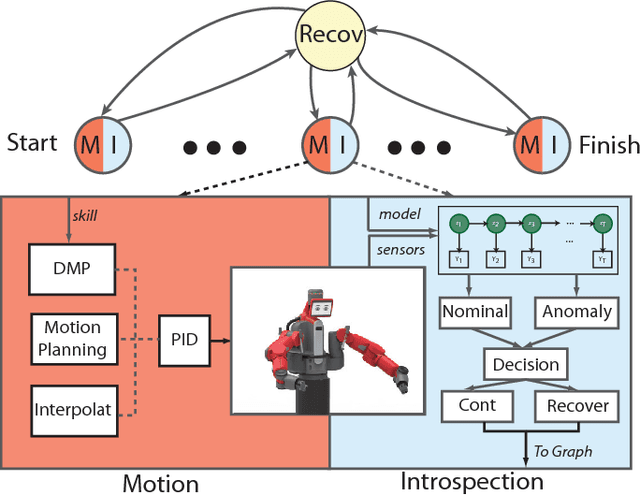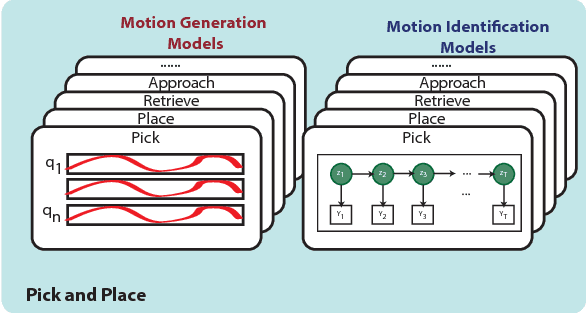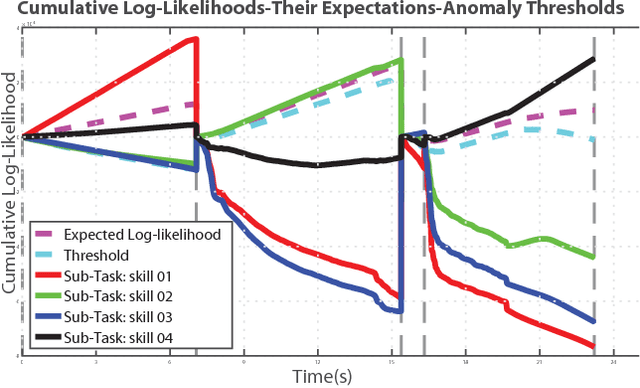Recovering from External Disturbances in Online Manipulation through State-Dependent Revertive Recovery Policies
Paper and Code
Apr 02, 2018



Robots are increasingly entering uncertain and unstructured environments. Within these, robots are bound to face unexpected external disturbances like accidental human or tool collisions. Robots must develop the capacity to respond to unexpected events. That is not only identifying the sudden anomaly, but also deciding how to handle it. In this work, we contribute a recovery policy that allows a robot to recovery from various anomalous scenarios across different tasks and conditions in a consistent and robust fashion. The system organizes tasks as a sequence of nodes composed of internal modules such as motion generation and introspection. When an introspection module flags an anomaly, the recovery strategy is triggered and reverts the task execution by selecting a target node as a function of a state dependency chart. The new skill allows the robot to overcome the effects of the external disturbance and conclude the task. Our system recovers from accidental human and tool collisions in a number of tasks. Of particular importance is the fact that we test the robustness of the recovery system by triggering anomalies at each node in the task graph showing robust recovery everywhere in the task. We also trigger multiple and repeated anomalies at each of the nodes of the task showing that the recovery system can consistently recover anywhere in the presence of strong and pervasive anomalous conditions. Robust recovery systems will be key enablers for long-term autonomy in robot systems. Supplemental info including code, data, graphs, and result analysis can be found at [1].
 Add to Chrome
Add to Chrome Add to Firefox
Add to Firefox Add to Edge
Add to Edge